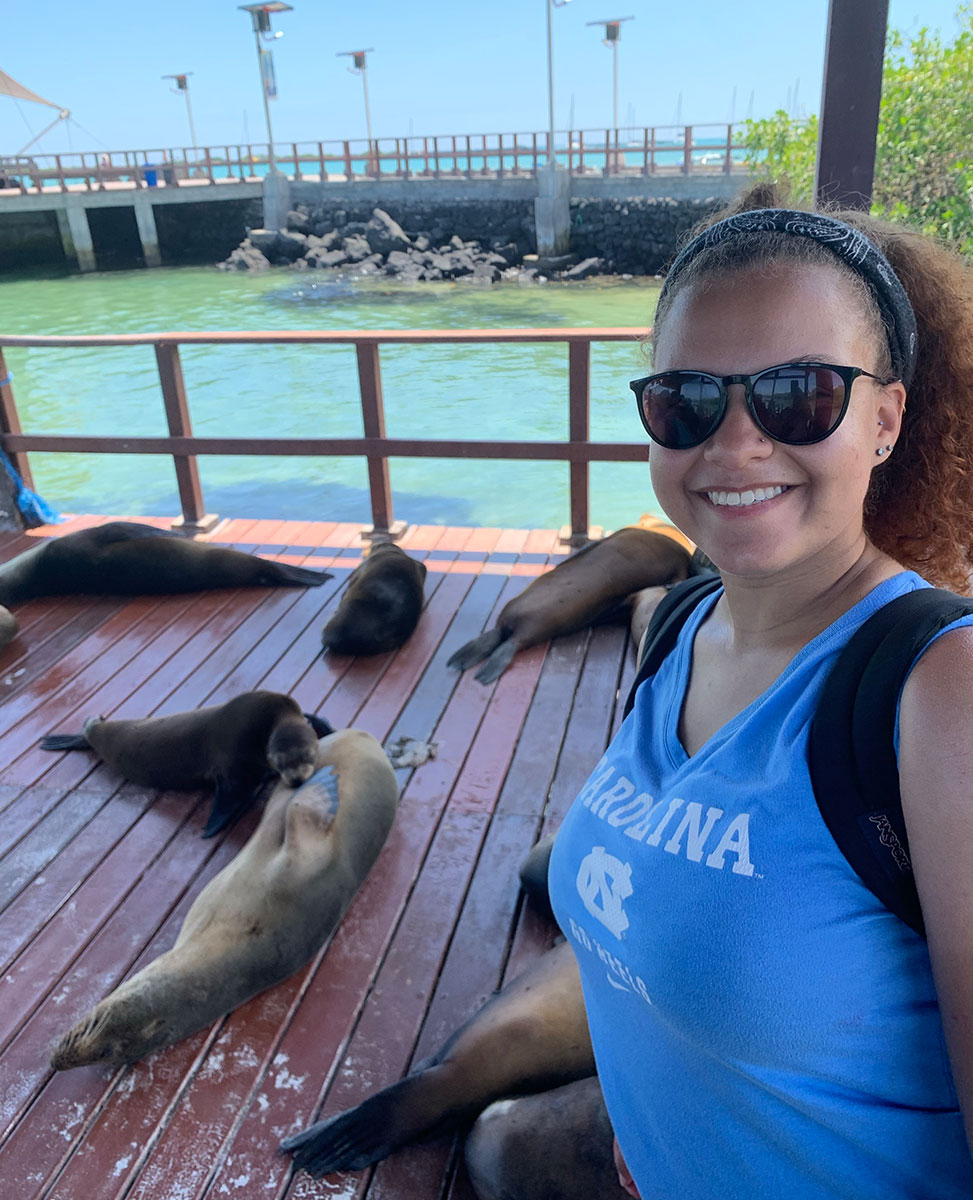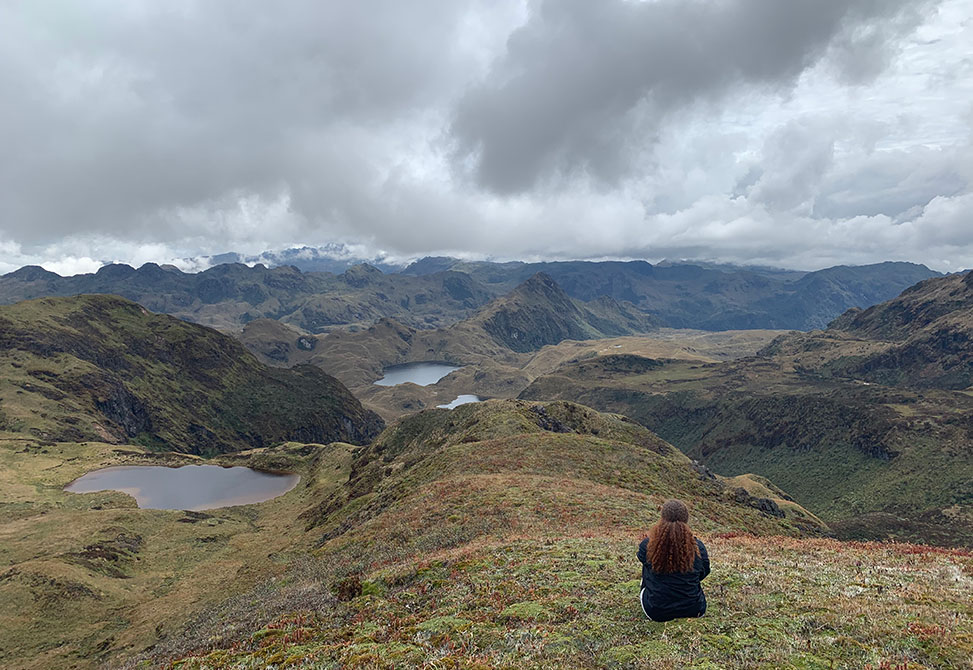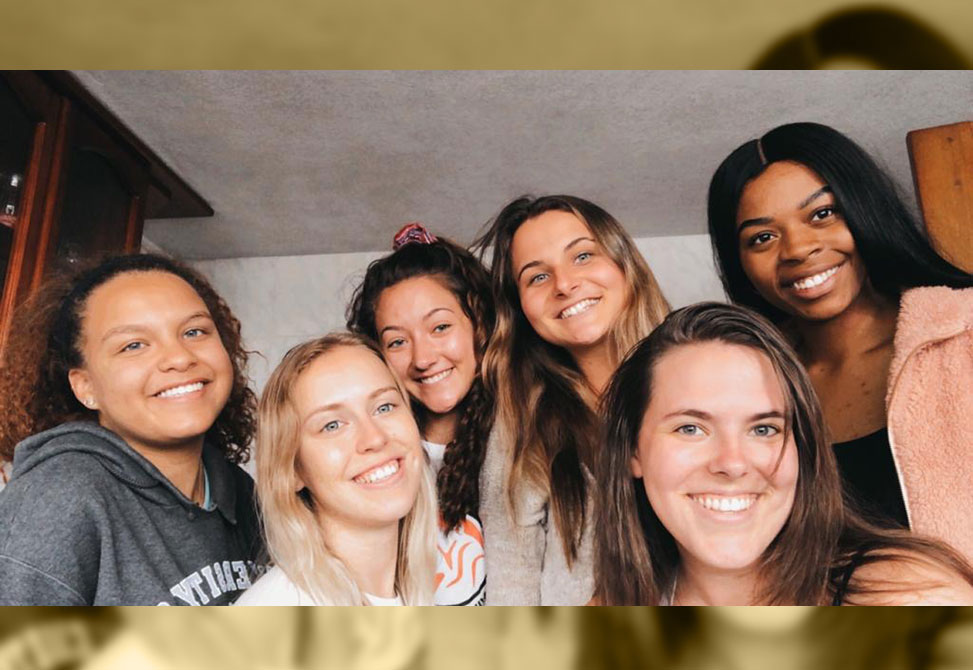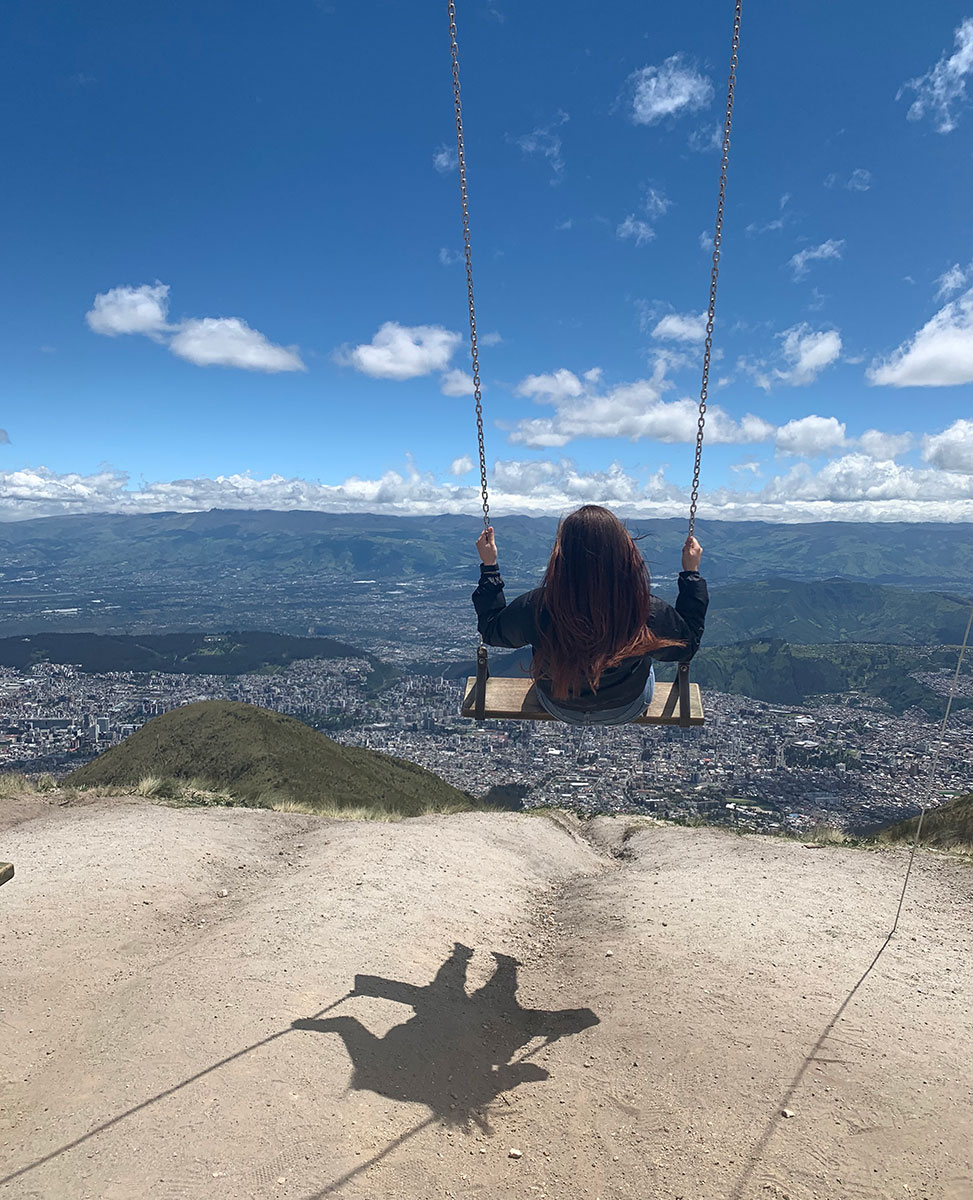Briana Augustin
About My Study Abroad Program
Major/Minor: Double Major in Psychology and Exercise & Sports Science w/ a minor in Education
Program: Universidad de San Francisco de Quito Direct Enroll
Location: Quito, Ecuador
Email: brikaug@live.unc.edu
Term: Spring 2020
Why did you choose to study abroad and how did you select your program?
Studying abroad has been one of my biggest life goals since I was about 12 years old. I have dreamed about living in another country, experiencing a new culture and learning a new language for as long as I can remember. Once I decided that Spanish was the language I wanted to gain fluency in, I knew I wanted to go to a Spanish-speaking country but I also knew that I wanted to learn a Latin American dialect as that is more closely related to the Spanish spoken in the US. Looking through programs, I struggled to find a Central/South America program that specifically fit my major and my interests until I came upon my program. Further research into the country of Ecuador led to me learning that they have great relations with the US, they have a very open and accepting society, travel within the country is very achievable and the university itself has a great network with UNC. All these qualities drew me to my program and ultimately drove me to apply so I could cater to both my travel and safety needs as well as my academic wants.
What did you learn about yourself?
Through this experience, I learned so many things that I can't even count. As far as linguistically, I learned that I am very capable of communicating with Spanish speakers in a variety of conversations. Personally, I gained confidence that I have never felt and learned that happiness is easily in reach for me. Socially, I learned that I have all the tools to make meaningful connections with those around me.
What is one of your favorite memories from your program?
One of my favorite memories from the program is the very first day I arrived. The moment I met my host mom, I felt so loved and safe. I could see myself making a home there. Then, I attended orientation and made some friends quickly. They turned out to be the friends I would keep throughout the semester and have talked to every single day since then. Without my new friends and my loving host mom, I would have felt lost but as soon as I met them, I knew this would be the best experience of my life.
What advice do you have for future study abroad students?
For future students, I would say that accepting the uncertainties is part of the journey. It is often said that we grow in discomfort and this couldn't be more true. Overtime, I started to feel safe in discomfort because I knew I was flourishing and growing into the person I am meant to be and want to be. Those around you will always be available to help and you have all the tools necessary to be happy and successful. Don't let the fear of uncertainty scare you away from the experience of a lifetime.
How do you identify?
Student of color, LGBTQ+, Scholarship Recipient
Could you share any experiences where your identity played a role in your time abroad?
As a person of color, specifically as a lightskin black woman, I did face some obstacles that I don't face as often in the US. I would say that people are a bit more blatant with their racism in Ecuador. They will very obviously favor white people more often as far as giving them better deals, paying them more attention, etc. While I do experience this in the US, it is much more obvious in Ecuador. It is almost as if they don't care about preferring lighter skin. Also, they often use language that can be uncomfortable. They say the "n-word" very often as they have no historical context and simply believe that it means "cool" or "gangster" and black people are referred to as "negro" as that is the word for black in Spanish and simply how they identify people. Finally, being a part of the LGBTQ+ community will be a bit difficult as the majority of the country is catholic or has catholic influence. The general consensus is that while it is not common, it is also not their business and it is likely that nothing will be said to you. It just simply will not be celebrated often. That being said, the university itself has a Gay Straight Alliance that can provide help resources and they also point you in the direction fo LGBTQ+ bars and hangout spots.
Is there any advice you would give to other students who share your identity?
I would advise other students with a similar identity to remember that they are in another culture the history behind some issues are much different than they are in the US. This means that you may need to accept something that is not normal for you in the US as something normal in this country. That being said, the people around you will be open to communication and respect how you would like to be treated or how you feel. Surround yourself with people who support you and do understand as best as you can. Also, remember that there are people in the country supporting you and fighting the bigger fight just as they are in the US. You are not alone even though you can feel that way when you are in a different country. Finally, do not let this offset you from this experience. I did not experience anything horrible enough to make me regretting going or make me want to leave. The experiences were not enjoyable but it is part of the culture and the country so absorb that and use it moving forward.
If you faced any challenges abroad, where could you turn to get the support you needed?
I found a lot of comfort in the friend group I had established abroad. Some of them were more privileged than I was and used their privilege to help me when they could. I also found safety in the Study Abroad Office at USFQ and the Global Dragons. Someone was always available to help with any problem I had. Luckily, I did not face anything to serious so I did not need to contact them but knowing they were there 24/7 did help me feel more comfortable.
Memories




